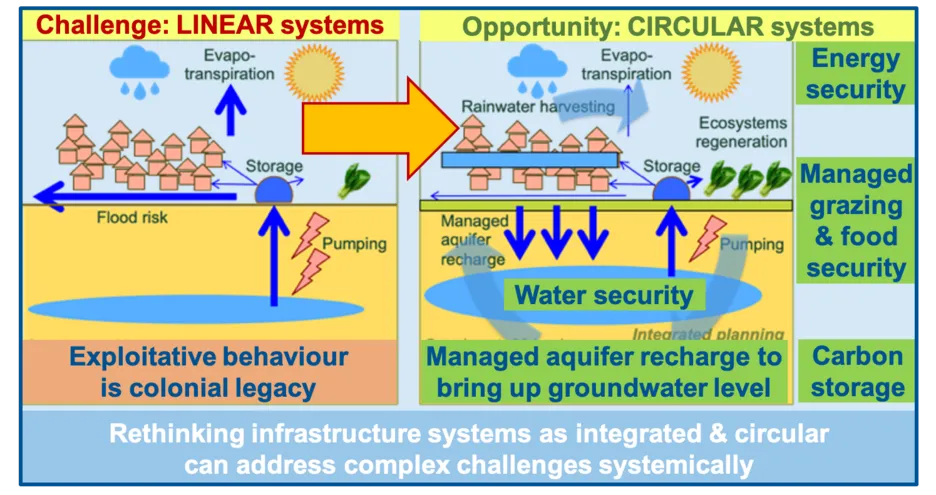TRANS-SAHARA
Novel WEFE Nexus-based approaches towards agroforestry management in the Greater North African Region
TRANS-SAHARA will establish a groundbreaking approach for leveraging agroforestry systems to support African communities in their fight against climate change. This innovative approach is based on the well-established Water-Energy-Food-Ecosystems (WEFE) Nexus approach, which emphasizes the primacy of ensuring water security when designing, installing and managing agroforestry systems. The translation of this conceptual agroforestry management approach into real-world applications is supported by an array of technical and non-technical innovations. These include cutting-edge measurement methods and tools to accurately assess environmental and socio-economic impacts, scalable nature-based intervention strategies to facilitate sustainable exploitation of natural resources, and novel business models designed to secure long-term livelihoods of local communities engaged in agroforestry practices. The efficacy of the novel approach and supporting innovations will be rigorously tested and validated through a series of large-scale pilot demonstrations set to take place in key locations across Africa, including Tunisia, Ghana, and Ethiopia. Novel community-led engagement methods are used to support the co-design of the demonstrators, and ensure deep acceptance of the innovation within local communities. Expected outcomes will contribute to bridging the agroforestry data gaps in Africa, increased crop yield, doubling of farmers’ annual incomes, and creation of new carbon sinks across previously degraded territories. An ambitious post-project exploitation plan executed in partnership with EU and African policymakers and civil society groups foresees the immediate and widespread uptake of resulting innovations across African Union (AU) member countries and beyond by 2030. Innovation adopters will significantly enhance their communities’ resilience to threats posed by the climate emergency, and stimulate highly sustainable socio-economic development across their region.
Partners
TUM Coordinator: Dr. Daphne Gondhalekar & Prof. Jörg E. Drewes, Chair of Urban Water Systems Engineering, SC ED
TUM Collaborating Chairs:
- Professorship of Ecoclimatology, Prof. Annette Menzel
- Institute of Forest Management, Prof. Thomas Knoke
Beneficiaries:
- ZABALA Brussels, Belgium
- Accademia Europea di Bolzano (EURAC), Italy
- Environment Europe Foundation, The Netherlands
- Kwame Nkruma University of Science and Technology (KNUST), Ghana
- West African Science Services Centre on Climate Change (WASCAL), Ghana
- Pan African University Institute of Water and Energy Sciences (PAUWES), Algeria
- World Agroforestry Centre (ICRAF), Kenya
- National Research Institute for Agricultural Engineering, Water, and Forestry (INRGREF), Tunisia
- Cheikh Anta Diop University of Dakar (UCAD), Senegal
- Rural Polytechnic Institute for Training and Applied Research) (IPR-IFRA), Mali
- University of Pala (UPALA), Chad
- University of El Manar (UEM), Tunisia
- National Agency of the Great Green Wall (GGW) (GGW Country Office), Chad
- Ministry of Environment and Sustainable Development (GGW Country Office), Djibouti
- Senegalese Agency for Reforestation and the GGW (GGW Country Office), Senegal
Associated Partners:
- United Nations Convention to Combat Desertification (UNCCD) Great Green Wall Initiative, Germany
- United Nations University Institute for Environment & Human Security (UNU-EHS), Japan
- Bavarian State Ministry for Environment and Consumer Protection (StMUV), Germany
- National University Corporation Wakayama University, Japan
- National University Corporation Tottori University, Japan
- Tokyo University of Agriculture, Japan
Funding
European Commission
Project duration
01.11.2024-31.10.2027
